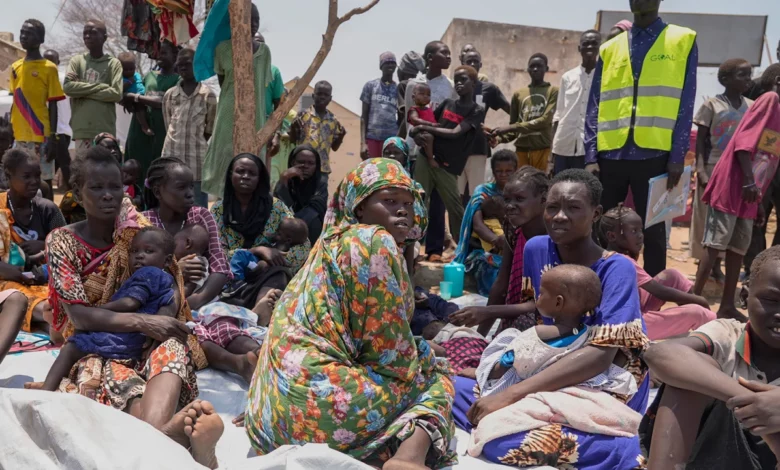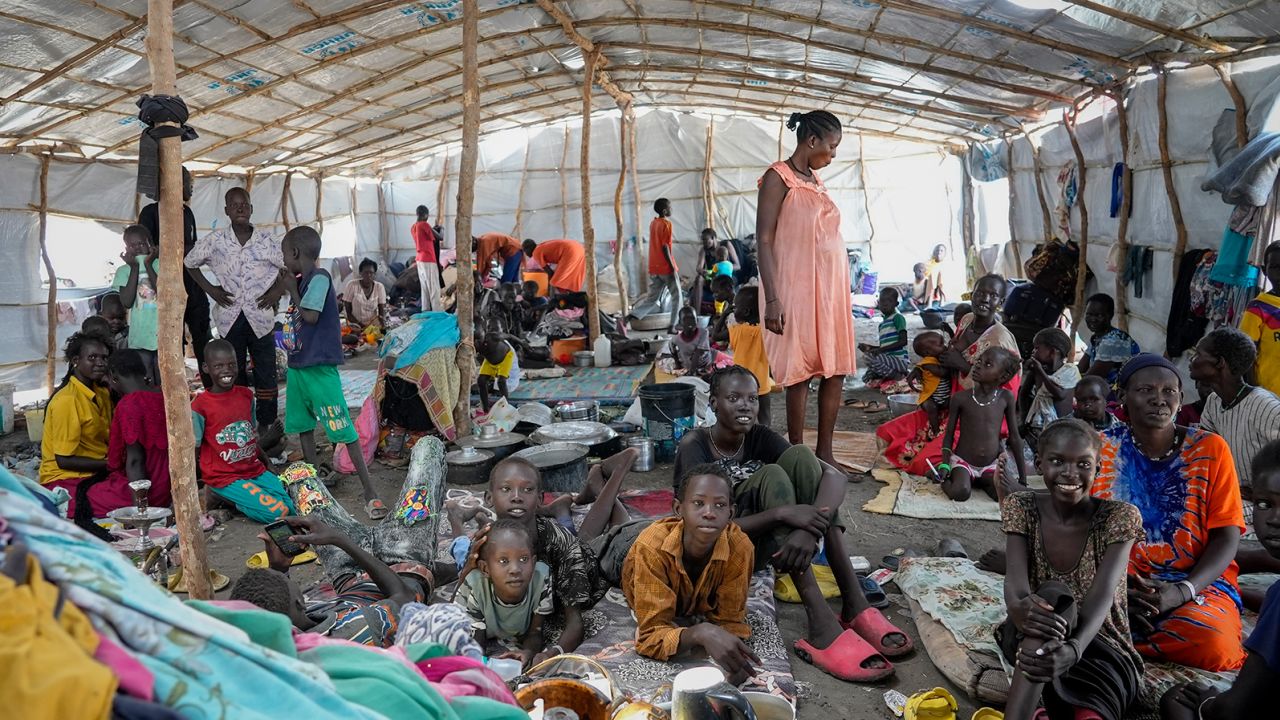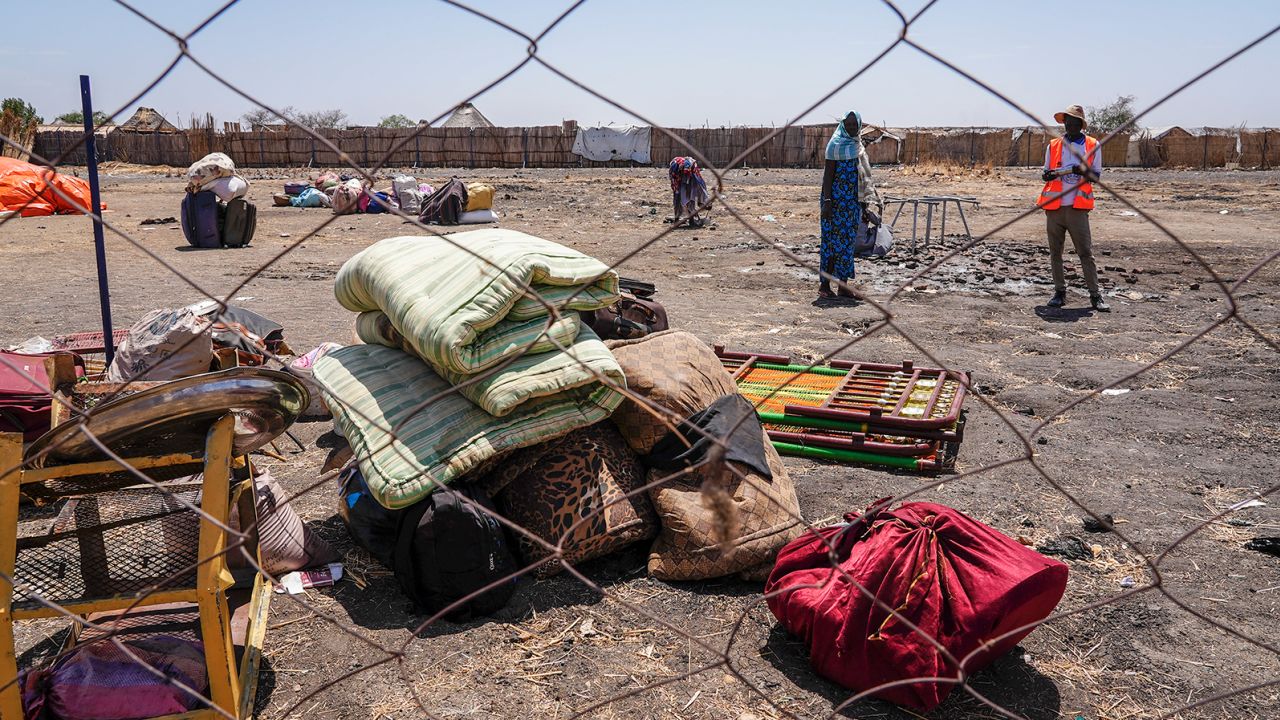
Even before the fighting intensified, years of political instability meant Sudan had several million people internally displaced. The country also hosted 1.13 million refugees from other conflict-ridden countries, including South Sudan, Eritrea and Syria, according to UNHCR data.
The new outbreak of violence has forced a fresh wave of people to leave their homes, either moving elsewhere in Sudan or crossing into neighboring countries.
The new estimate cited figures from several UN agencies.
Since fighting broke out on April 15, more than 1 million have been displaced internally in the country as of May 23, according to the UN’s International Organization for Migration (IOM)’s Displacement Tracking Matrix.
“The number of newly internally displaced people in just over five weeks (15 April to 23 May) is comparable to that recorded for all displacement in the country from 2020 to 2022,” the release said.
As of May 26, a further 345,000 had fled Sudan into neighboring countries including Egypt, Chad and Ethiopia, according to the United Nations High Commissioner for Refugees (UNHCR).

Amid the vast displacement, there have been increasing reports of gender-based violence and domestic violence, especially among internally displaced Sudanese populations, the UN Population Fund said.
Alarmingly, reports of “sexual violence against women and girls, including allegations of rape, committed by the parties to the conflict,” have also been recorded, said Pramila Patten, the UN Special Representative of the Secretary-General on Sexual Violence in Conflict.
The current conflict pits the Sudanese Armed Forces (SAF) against its rival the Rapid Support Forces (RSF). Fighting has continued despite the agreement for a seven-day ceasefire that started on May 22, brokered by Saudi Arabia and the United States.
There are fears of further escalation with the ceasefire expected to end on Monday.
Thousands of foreign nationals have escaped the country as Western and regional powers stepped in to evacuate their own citizens, but thousands of families have risked perilous journeys from the capital Khartoum and other parts of Sudan as they have been left to fend for themselves, or flee to neighboring poverty-stricken countries.
At least 730 individuals have been killed and about 5,500 others wounded as of May 23, according to Sudan’s Federal Ministry of Health.
Since the conflict began, at least eight humanitarian workers and eight health workers have been killed, the UN said.
A separate toll kept by the Preliminary Committee of Sudan Doctors’ Union said at least 850 people have been killed with some 3,400 wounded.

Deadly attacks have been reported in multiple parts of the war-torn country and civilian facilities were damaged with reports of looting and unexploded devices seen in urban areas, the UN release said.
There have been at least 38 attacks on health care premises in Sudan since April 15, the World Health Organization reported. This includes 22 attacks on health facilities, six attacks which impacted warehouses, and nine attacks which affected supplies, among others.
In East Darfur, more than 30 babies died in a hospital in Ad Du’ayn, including six newborn babies, due to problems including lack of oxygen and an electricity blackout, WHO reported.
In the western Sudanese town of Zalingi, there have been reports of looted homes, schools, banks, government institutions and humanitarian locations, the UN said.
“Water and electricity services have been disconnected, and telecommunication services have been disrupted,” the statement added.
There are also growing reports of unexploded ordnance in Khartoum and in several other urban areas in Sudan, including in buildings, roads and roadsides, according to the UN Mine Action Service.
The UN said humanitarian partners are working quickly to move relief supplies to areas where they are most needed, but there are insecurity and transportation challenges.




